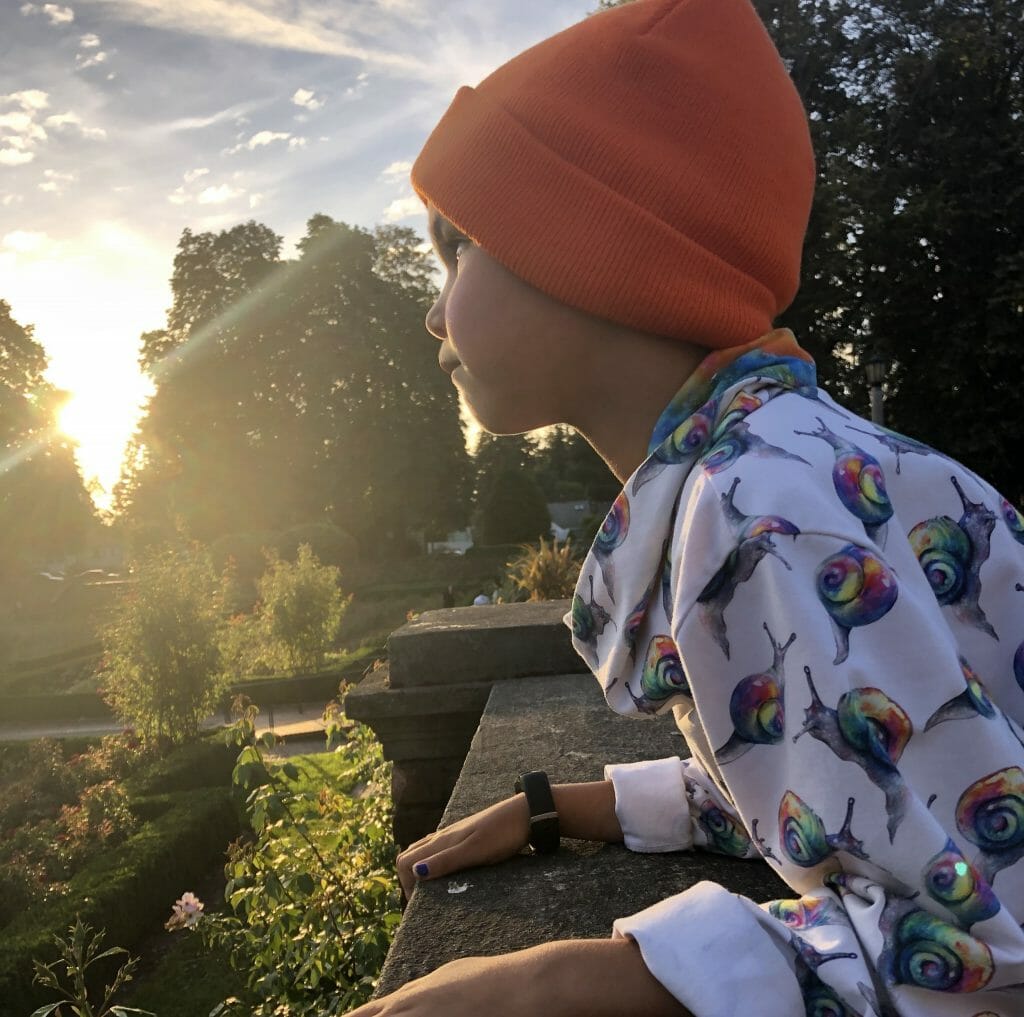By Rebecca Martinez
A safe and sensitive way to speak with your children about psychedelics, explained.
We are living through rapidly shifting times. As parents in the psychedelic community, we are not only navigating our own medicine work, but realizing a responsibility to help our children make sense of the changing landscape as well. Whether they’re teens perusing Reddit boards and watching Netflix documentaries, or young children overhearing adult conversations about psychedelic medicine or drug policy, young people are constantly absorbing messages about these substances. Parents have an opportunity to help set the tone for ongoing dialogue and intentionally guide their children toward a less stigmatized understanding of psychedelics.
Many advocates feel passionately about reducing stigma around psychedelics as medicine and changing the way we approach substance use as a society. One way that we can interrupt harmful stereotypes and policies is by living our truths within our own families and intervening in the messaging the next generation receives about substance use. By helping young people develop a less sensationalized and more factual and nuanced perspective on psychedelics, we can empower them to make balanced and informed decisions as they grow up.
Because I worked on Measure 109 in Oregon and several cannabis farms beforehand, my son, who is now seven, is unusually adept in his understanding of plant medicine and psychedelics. His introduction to mushrooms came in the context of fighting for healing options in our community, and his understanding of cannabis involved running through fragrant fields on a biodiverse organic farm. We have spoken openly about these medicines his whole life. Because of this, they don’t carry the same frightening charge they had when I was a child, growing up in a strict, Pentecostal home where the mere mention of drugs, let alone curiosity about them, was forbidden.
For those who don’t have opportunities to teach through professional exposure like I did, here are a few tips for starting and navigating a conversation with your children about psychedelics.
Remember that basic communication values apply: Ask for consent before sharing; create opportunities to listen as much as you speak; and be okay with not reaching a tidy conclusion. These topics are far reaching and can be overwhelming. Ideally, they should be infused into larger family conversations and be revisited as they come up naturally over time.
How To Talk With Your Kids About Psychedelics:
Get Clear with Yourself First
Before you open up a conversation with your child, spend some time journaling and reflecting about your own beliefs and assumptions around psychedelics. What are your hard and fast rules about substance use, and how did they come to be? Is it possible that your experience doesn’t paint the whole picture? For example, your profound healing experience with ayahuasca does not mean everyone who uses it will experience the same benefits. Alternately, having a scary experience with LSD does not make LSD inherently dangerous. Do you believe that some substances are inherently harmful and others are inherently beneficial? Why is that? (For a deeper exploration of this subject, read Dr. Carl Hart’s book, Drug Use for Grown-Ups.)
What are your blind spots? See if you can identify your biases, own your unique experience, and not allow your individual narrative to color the entire landscape of your child’s views on drugs. Get clear on the heart of your message and know when to set aside your personal experience in exchange for larger truths.
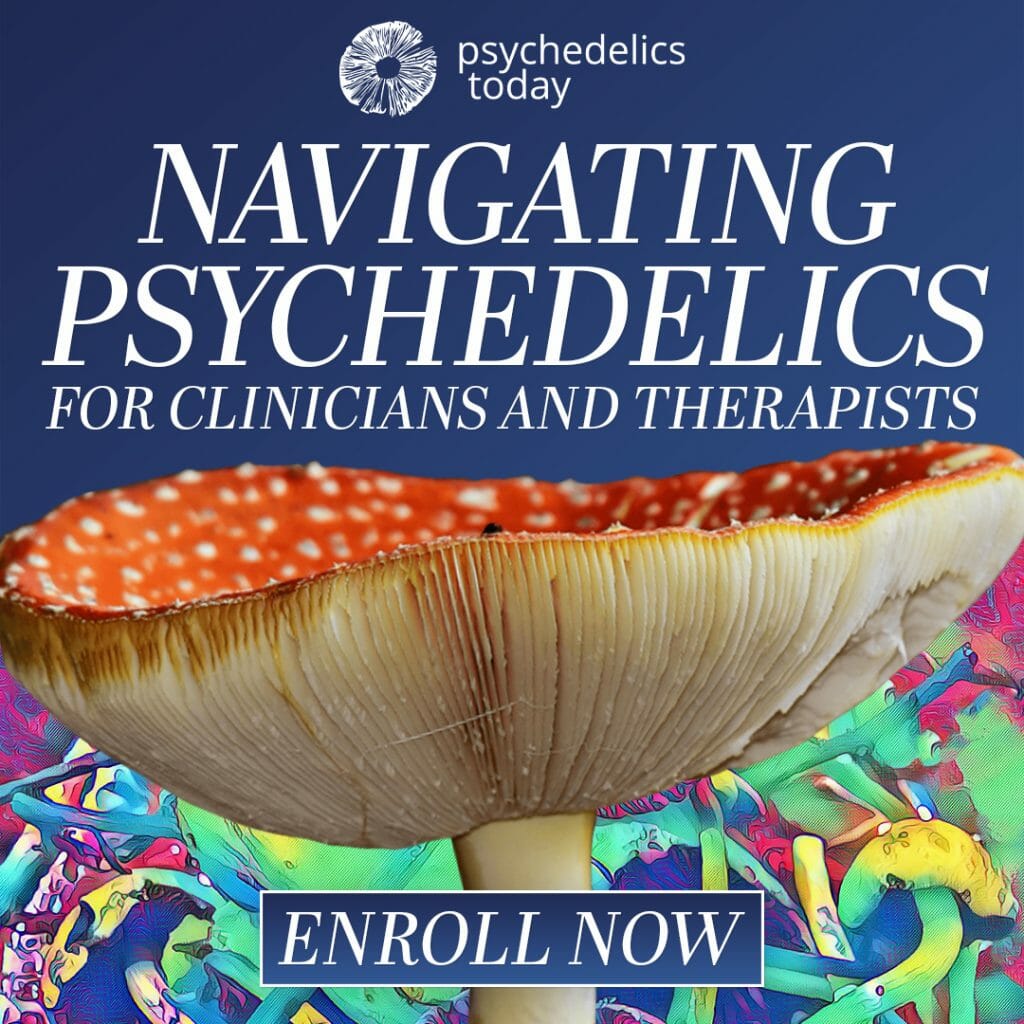
Get on the Same Page with Your Co-parent
Every family is different. On one end of the spectrum there are parents who use psychedelics together and are prepared to have a family conversation about it. If you are in a co-parenting situation there are added considerations. Is it possible this topic could spark family tension or create a burden of secrecy or pressure to choose sides for your child?
In cases where custody is a consideration, take extra caution. Do you have a co-parent or other adults who may use the knowledge of your usage against you in court?
If at all possible, have a conversation with your co-parent about your relationship with psychedelics and see if you can get on the same page about how to approach this conversation with your children.
Show, Don’t Tell
If you believe psychedelics can be beneficial and part of a healthy, happy life and want to convey this to your child, make sure your lifestyle and substance use reflects this. As the saying goes, lessons are “caught, not taught.” What you model about psychedelics in daily life will speak volumes over the words you say.
Consider the Timing and Risks
The risks and benefits of disclosure are different in every family. If you are currently closeted about your psychedelic use, it might be more beneficial to come out publicly around the same time you open a family dialogue. If you are in a community or job where the implications of your drug use could be damaging to your reputation or employment, seriously consider possible outcomes before proceeding.
Asking your child to keep a secret from friends, parents, and teachers could be a great burden. Make sure you have thought through the potential impacts on your child and your expectations about how they will respond. They may not be able to keep your use a secret, so consider what could happen if they disclose this information to others.
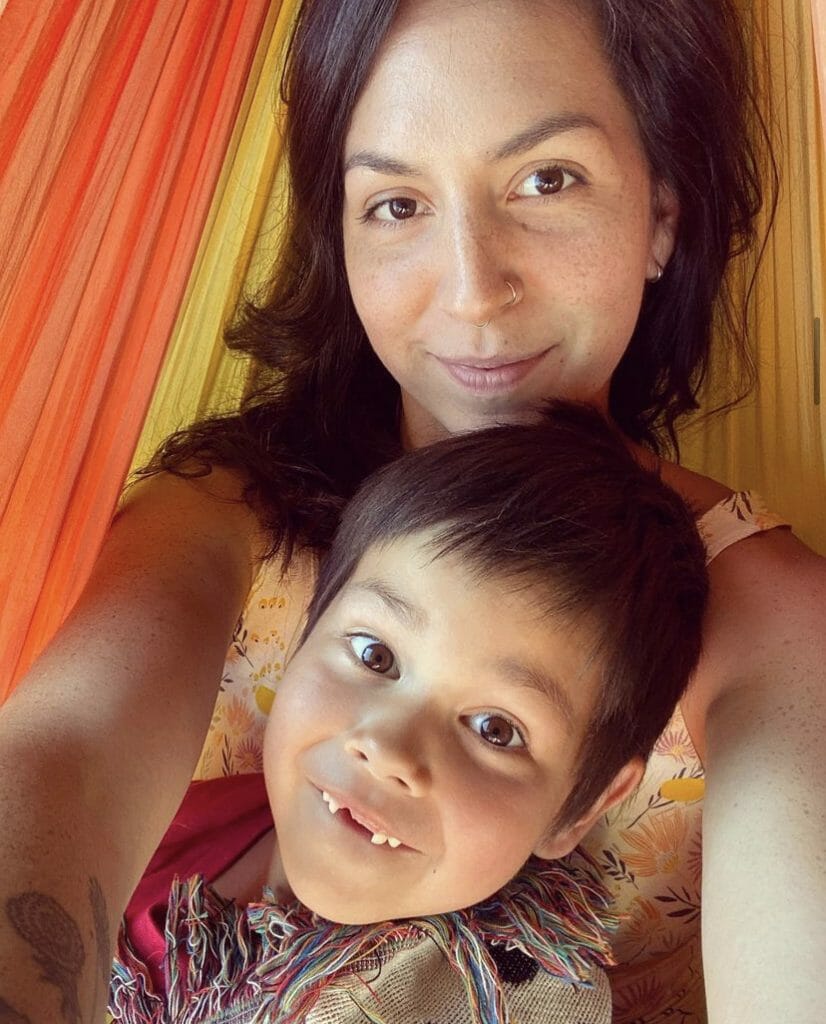
Open an Ongoing Conversation, Not a One Time Talk
If this is the first time you are broaching the conversation, it may be tempting to overload your child with information to ensure they have all their questions answered. Remember that your support or personal use of psychedelics may come as a surprise and be a lot for them to digest.
Be prepared to have a brief conversation and leave space for questions. Let your child set the terms for how much to discuss. Before moving on to other topics, let your child know you will check in a few days to answer any questions they may have. Be sure to follow through on this.
Consider Age and Awareness Level
How this dialogue plays out will vary widely based on the age of your children. A conversation with small children is not needed. Instead, take a cue from parents using cannabis in the home: Make a habit of keeping substances and supplies securely out of reach and when needed, let children know these medicines are strictly for grown-ups.
If you open the dialogue with your child during grade school, this may be their first introduction to the topic. Ask them questions. Have they heard about psychedelics? What do they already know or believe about them?
Ask for their consent to share about your perspective and explain why you have chosen to have a conversation. Maybe you want to build trust and create a culture of honesty in your home. Perhaps you’re anticipating the messages they’ll get in school and want to offer an alternate perspective. Or maybe you want to be involved in their introduction to psychedelic experiences.
Most older children and teens will be capable of having a more nuanced conversation. Ask them to share what they know and how they feel about drug use. Be prepared to talk about laws, cultural stereotypes, and household expectations.
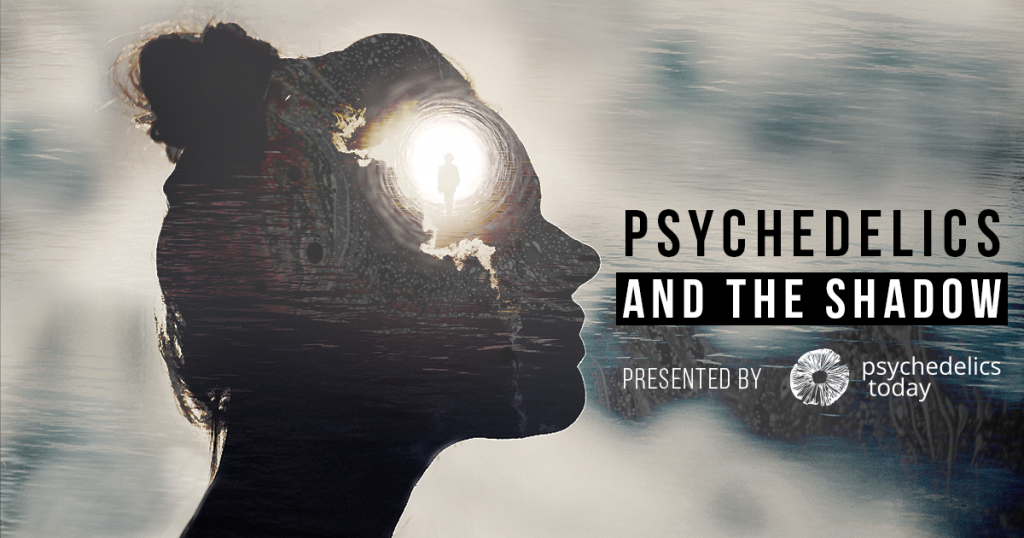
Don’t Make It a Huge Deal
Kids these days will be exposed to plenty of anti-drug messaging which can feel quite serious and scary. If you approach the topic of psychedelics with too much gravity yourself, you may be sending conflicting messages. They will pick up on your tone, body language, and mood as much as what you say.
If you frame a coming-out conversation more like a confession, or if it is intense and emotionally charged, your child may come away confused about how you feel about your own substance use. By demonstrating that it is easy to have an open, stigma-free conversation about psychedelics, you will open the door to future conversations when they have questions or curiosity.
Explain Your Decision to Use Psychedelics
If your child wants to hear, explain when your relationship with psychedelics started. Talk about things you wish you would have known beforehand.
Discuss your personal path. How has your psychedelic use benefitted or changed you? Do you use them for mental health or in your spiritual development? What are the reasons you support the use of psychedelics?
Share about your personal practices for using them safely. Do you only use them when you’re not parenting? How do you create safe containers and make sure you can still be the best parent and person you can be? Explain what set and setting is, and how intentional use differs from party/recreational use that young people may be exposed to.
Discuss the Laws and Consequences
Times are changing. We are already seeing a wave of changing laws, first with cannabis nationwide, and now with psychedelics in select cities, and possession of all drugs in Oregon. The old reprise, “Don’t use drugs because they are illegal,” is no longer sufficient for talking with kids about drugs. This calls parents to think critically about how they present the issue.
Explain why the age limits on legal substances exist, and the importance of taking extra good care of one’s mind and body, especially during the developmental years.
Help your child understand why you are discreet about your use of psychedelics. Familiarize yourselves with the laws in your area. Discuss the consequences of possession and use of scheduled substances. You may choose to do some research together. It is okay to admit if you feel conflicted about breaking the law to use psychedelics. Most youth appreciate seeing humanity and vulnerability in their parents.
Watch a documentary or read a book together about the war on drugs. Talk about initiatives in your area and what you are doing to help create change. Ask your child to share their thoughts and prepare to be surprised by their clarity and insight.
Explore History and Indigenous Use
Put the use of psychedelics into a historical context. This is information young people won’t be exposed to in school. Emphasize that the ceremonial history of entheogens goes back thousands of years and is far more multifaceted than the American 1960’s psychedelia subculture. Explore stories about Maria Sabina and the Mazatec people of Oaxaca, Mexico, the Bwiti people’s relationship with Iboga in West Central Africa, and other histories of ceremonial psychedelic use around the world. What is your family’s heritage? See if you can find the pre-colonial traditional use of entheogens in your ancestral line.
Discuss the Research
Most children know someone who is affected by depression, addiction, or PTSD. In an age-appropriate way, explain that there are research institutions finding ways psychedelics can help people heal their minds and spirits and live happier, healthier lives.
Ask what your child thinks about these medicines being used in a medical context, and be willing to listen and answer questions they may have.
Explain the Experience
If alcohol is commonplace in your home, explain that, like drinking alcohol or using certain medications, taking psychedelics has temporary effects on the mind and body which make it unsafe to drive or work while under the influence.
Take time to clarify assumptions and common misconceptions. Discuss how the media’s portrayal of psychedelics differs from your firsthand experience. If your child wants to know what psychedelics feel like, be sure to highlight the emotional and spiritual sensations as much as the visual and sensory experiences associated with them. Try to find common ground when broaching this topic, for example, many children relate to the idea of a dream quest or journey, especially if they are interested in fantasy books or media.
Talk about the power of language. To you, are these substances drugs that you trip on, or are they medicines for healing experiences and journey work? Do you use them to unwind and relax, or as a ceremonial part of your spiritual practice? It’s important to get clear with yourself first, and then explain to your child using your preferred language.
Discuss your Expectations and House Rules
Explain why there are age restrictions on the use of legal mind-altering substances. Define what you see as an appropriate age for use, revisit the legal risks and ramifications of use, and set clear household expectations. Some parents want to be present for their child’s first psychedelic experience. Some want to source the supplies for them. Others want their child to feel safe calling them if they find themselves in situations that feel unsafe or out of control. Whatever expectations you set, be prepared to follow through on this commitment.
Remember that your child will choose to do what they wish, and that building trust and open lines of communication will lead to more safety than simply enforcing hard and fast rules.
As you wrap up the conversation, be sure to emphasize your openness to your child with phrases like: “If you ever have questions, I am here for you. There are no stupid questions and I will do my best to create a judgment-free space for you.”

Provide Alternative Resources
Depending on your relationship, your child may not feel fully comfortable opening up about their questions or experiences with you. If they want to learn more, offer books, films, organizations, or documentaries, and perhaps a trusted mentor you can refer them to.
Things to Avoid When Speaking with Your Children About Psychedelics
Overloading: Take cues from your child on whether they have heard enough or are engaged and want to hear more.
One Sided Conversation: Create space for your child’s comments, questions and concerns. If they don’t have much to say, assure them this is fine and don’t push it.
Binaries: Good-bad, us-them, right-wrong type of language can make children feel pressured to pick sides in a highly nuanced conversation.
Showing Your Stash: There’s no benefit in showing your child where your drugs are kept or how they are used during this conversation.
Stories About Bad Trips or Scary Experiences: Modern children will hear enough anti-drug messaging during their lives. Your child needs to feel that you, as their parent, are secure and safe in order to feel secure and safe.
Conclusion
Part of the beauty of psychedelics is they introduce us to a more complex and interconnected view of the world. Through the lens of expanded states of consciousness, the world seems at once simple and profoundly intricate. Children have an innate capacity to see the world this way. Beyond the binaries of modern life exists a space for nuance and relationship. See if you can meet your child there.
It takes courage and commitment to the process to talk with children about psychedelics. When we do so, we are breaking generational patterns of stigma, fear and secrecy. The conversation around psychedelics could open up doors into deeper trust and communication with your child. Perhaps, by changing the culture in our homes, we can begin to change the culture at large.
About the Author
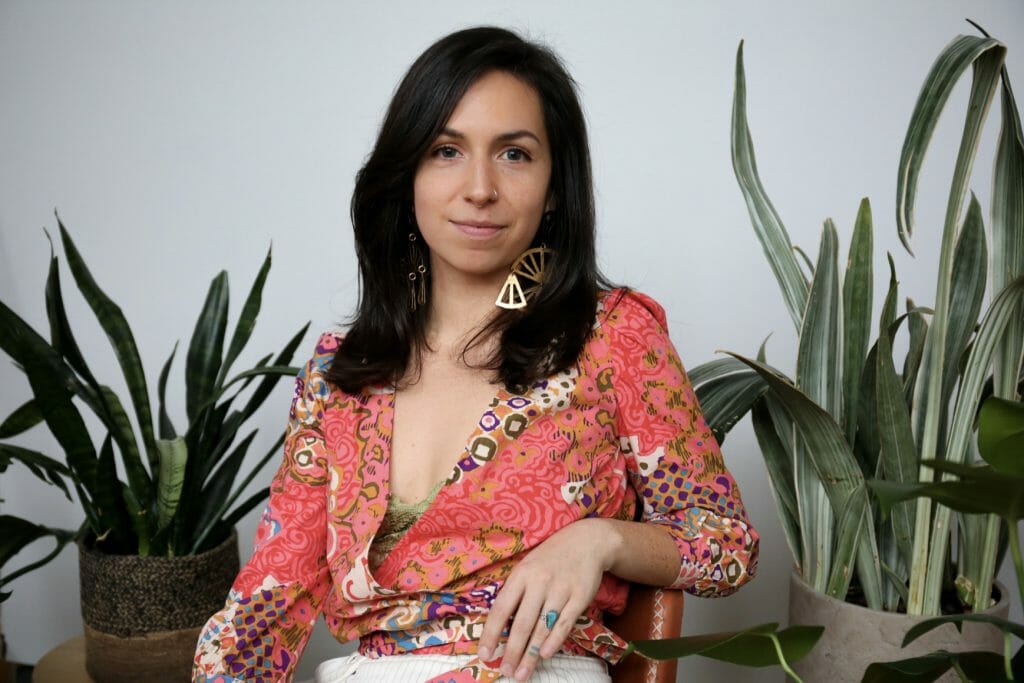
Rebecca Martinez is a Portland, Oregon-based writer, parent and community organizer. She is a co-founder of the Fruiting Bodies Collective, an advocacy group, podcast and multimedia platform exploring the intersections between healing justice and the psychedelics movement.
